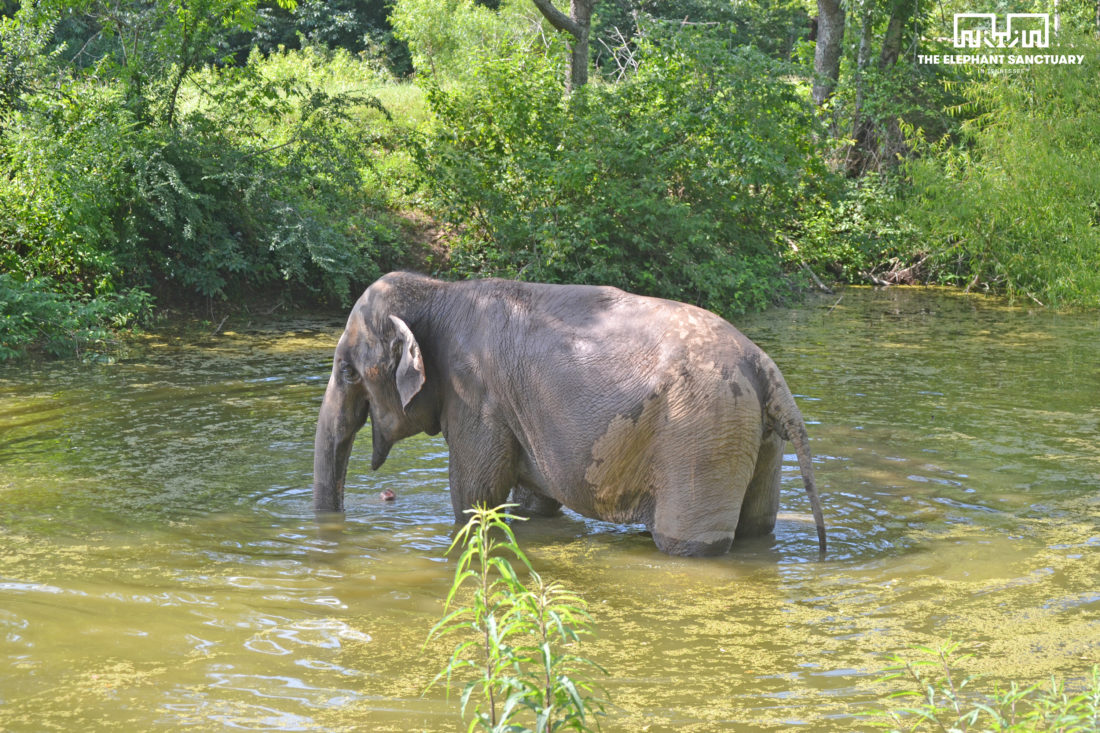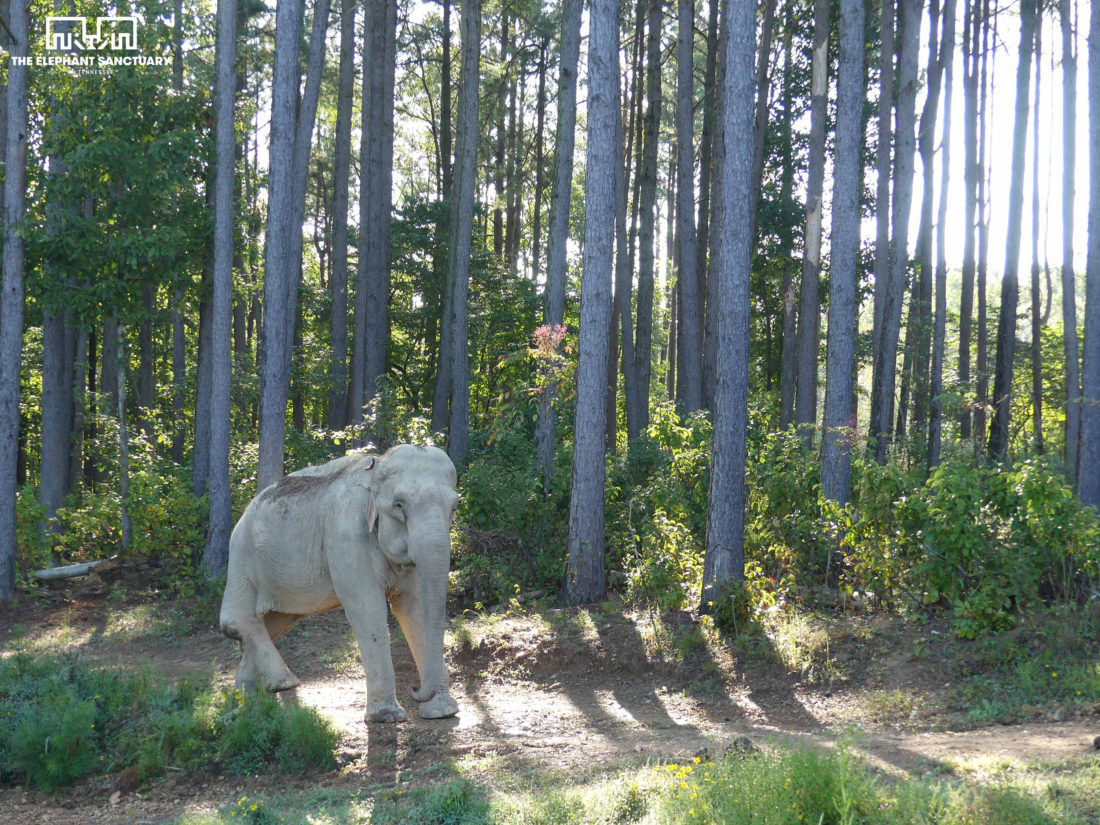It’s hard to imagine even one 12,000-pound animal hiding in the rolling hills of Middle Tennessee. But at the Elephant Sanctuary in Hohenwald, eleven African and Asian elephants—all of whom are retired from exhibition or performance—quietly and peacefully live out their lives.
The sanctuary, which was founded in 1995, isn’t a zoo, and the elephants aren’t on display—they roam freely through habitats on the 2,700-acre property. And that’s the whole point considering all of the elephants came to the sanctuary from circuses or other kinds of exhibitions, where many of them suffered abuse.Asian elephants can live an average of 48 years, while African elephants’ lifespans can stretch to seven decades. “Elephants are incredible, intelligent, very social animals, but humans haven’t always treated them well,” says education manager Joy Owens. “The time is now to really step up and take care of them.”

Photo: The Elephant Sanctuary in Tennessee
Sissy, a 50-year-old Asian elephant, can often be found splashing around in her habitat’s ponds.
This weekend, in honor of World Elephant Day on Sunday, August 12, the sanctuary is welcoming the public to its Elephant Discovery Center, to raise awareness about elephant welfare. The celebration will begin a day early, on Saturday, with events such as caregiver presentations and a screening of the North American premiere of Attenborough and the Giant Elephant, a documentary that investigates the life of Jumbo, the African elephant who rose to fame in P. T. Barnum’s 1880s circus show and may have inspired Disney’s Dumbo.

Photo: The Elephant Sanctuary in Tennessee
The outdoor classroom at the Elephant Sanctuary’s Discovery Center is available for scheduled tours as well as drop-in visitors.
While the discovery center is only a year old, it’s already served as an important bridge between the sanctuary, which aims for privacy, and the public, who naturally want to learn more about the majestic animals, like Shirley, a seventy-year-old Asian elephant who survived a ship fire, an overturned train transporter, and years of cruelty as a circus performer before arriving at the sanctuary in 1999.

Photo: The Elephant Sanctuary in Tennessee
At 70 years old, Shirley is the oldest elephant at the sanctuary and the third oldest Asian elephant in North America.
“There really hasn’t been a place for people to come as a public point for the sanctuary, so there was no way to connect with us in person until now,” Owens says. “Now, we’re reaching audiences that we’ve never reached before.”
The center’s summer hours are 11:00 a.m.– 4:00 p.m., Tuesday through Friday and the second Saturday of each month. If you can’t make it to the center for the festivities this weekend, the sanctuary maintains 24-hour “Elecams” that offer live-streaming of its three habitats.
Learn more about Shirley’s remarkable story in the video below:









